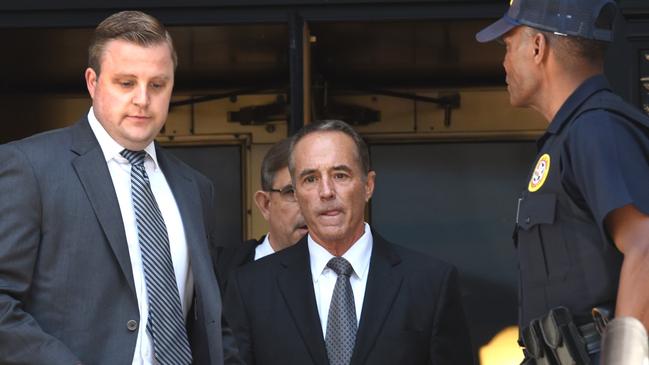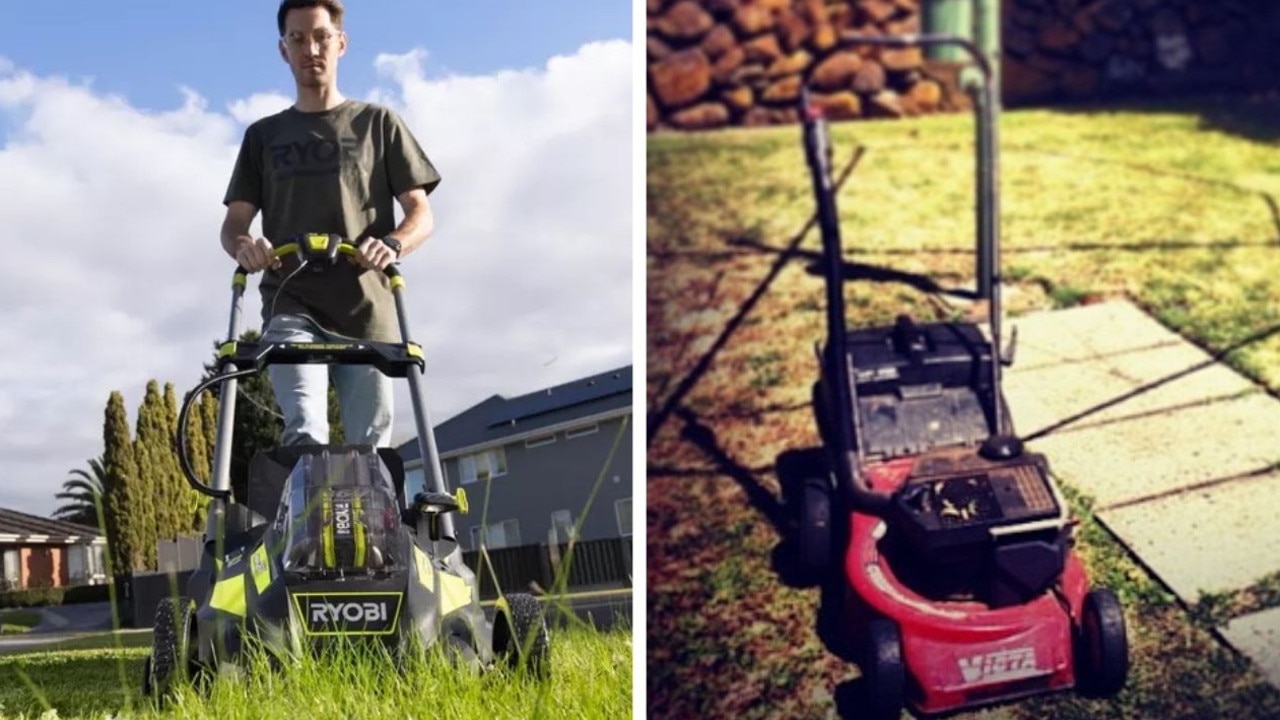Australian company caught up in insider trading scandal
Australian company is embroiled in an insider trading scandal for which one of Donald Trump’s greatest supporters in Congress was charged.

An Australian-listed biotechnology company has become embroiled in an insider trading scandal in the US that has led to one of Donald Trump’s leading supporters in Congress being charged.
Republican Congressman Chris Collins was arrested in New York today after he leaked secret information about Sydney biotech company Innate Immunotherapeutics, knowing that its stock price was about to collapse.
The congressman, who was a 16.8 per cent shareholder in Innate, is alleged to have told his son Cameron — who owned 2.3 per cent of Innate — that the company was preparing to announce that a trial into the effectiveness of MIS416 had failed.
The information was also allegedly later shared with Stephen Zarsky, the father of Cameron’s fiance, and five other unnamed parties that also held stock in Innate.
Those investors were then able to sell down their holdings ahead of the release of the news about the failed trial, which ultimately caused the share price of Innate to plummet 92 per cent.
According to the indictment, the investors collectively avoided around $US768,000 ($1 million) of losses by selling ahead of the announcement.
The dramatic development which dominated news in Washington today will almost certainly end Mr Collins political career and is a blow to the president and Republicans in the lead up to the November midterm elections.
The 68-year-old Mr Collins was one of Mr Trump’s earliest supporters and served as Congressional liaison to the Trump transition team after the 2016 election.
According to the FBI, Mr Collins was one of the largest shareholders in Innate, with a 16.8 per cent stake in the fledgling Sydney based company which was trialling a drug called MIS416 intended to treat Secondary Progressive Multiple Sclerosis.
The future of the company depended almost entirely on the success or failure of the test.
The FBI says that at 6.55pm Washington time on 22 June last year Mr Collins, as a member of the Innate board, received an email from the company’s CEO Simon Wilkinson in Sydney saying that the drug test had failed.
At 7.10pm Collins replied: “Wow. Makes no sense. How are these results even possible???”
“Christopher Collins conveyed this material, non public information to Cameron Collins knowing that it was in breach of his duties to Innate and anticipating that Cameron Collins would use it to trade and tip others,” the indictment says.
Cameron Collins then passed the information onto Stephen Zarsky, the father of Cameron Collin’s fiance who then passed it onto other family members.
While Innate’s ASX-listed stock was in a trading halt, Cameron Collins and the other parties mentioned in the indictment held their shares at a US broker where they could be traded in the US OTC market.
The indictment details how over the next three days — between June 23 and Innate’s disclosure of the failed results on June 26 — Cameron Collins then executed dozens of trades, selling around 1.4m shares in Innate. The indictment alleges those sales allowed him to avoid $US570,000 in losses.
The total loses avoided by Cameron Collins, Zarsky and others amounted to $US768,000.
The FBI said Collins could not sell his own shares because, unlike those held by his son, they were held in Australia where the company had been subject to a trading halt pending news of the drug test result.
The FBI then alleged that Mr Collins, his son and Mr Zarsky lied to the FBI when questioned about the suspicious trades.
Innate said today it had been co-operating with US authorities over Mr Collins.
In a statement Innate said: “It has co-operated fully with requests for information made to it by the US Securities and Exchange Commission”.
“The company and its directors/officers (excepting Mr Collins) are not under investigation,” it said, adding it considers the ongoing investigation to be a “private matter” to Mr Collins.
At the same time Innate rejected suggestions that Mr Collins was a beneficiary of any share issuance in the company on favourable terms.
“Mr Collins (and colleagues) have only ever participated in shareholder-approved share placements or “rights issues” of shares in the company. As is typical for a rights issue in Australia, the issue price was at a discount to market and fully disclosed as such,” it said.
Mr Collins retired as a director of the biotech in early May.
Shares in Innate last traded at 29.5c, down 1.5 per cent.
The fallout from the affair in Washington today was swift with house speaker Republican Paul Ryan suspending Mr Collins from the House Energy and Commerce Committee.
“While his guilt or innocence is a question for the courts to settle, the allegations against Representative Collins demand a prompt and thorough investigation by the House Ethics Committee,” Mr Ryan said. “Insider trading is a clear violation of the public trust. Until this matter is settled, Representative Collins will not be serving on the House Energy and Commerce Committee.”
The biotech has been in US headlines since December 2016, when US media reported Mr Collins and fellow Republican Senator Tom Price had bought Innate shares in a “sweetheart” deal.
Mr Price was US President Donald Trump’s pick for health secretary and served in the role until September 2017.
Two additional Republican congressmen to have bought Innate shares, Billy Long of Missouri and Markwayne Mullin of Oklahoma, are members of the US subcommittee on health and house energy and commerce committee with Mr Collins.
Mr Long made public disclosures he had bought between $15,000 and $50,000 worth of Innate shares on January 25.
In January last year The Wall Street Journal reported Mr Collins had offered Mr Price discounted shares in Innate.
It was also reported Mr Collins had been overheard by several reporters talking loudly on his mobile telephone bragging how he had made many people in his home of Buffalo New York “millionaires” by directing them to buy into Innate.
Lawyers for Mr Collins said they would “mount a vigorous defence to clear his good name.”
“It is notable that even the government does not allege that Congressman Collins traded a single share of Innate Therapeutics stocks. We are confident he will be completely vindicated and exonerated,” they said in a statement.
Cameron Stewart is also US Contributor for Sky News Australia



